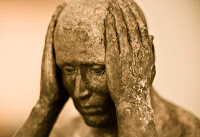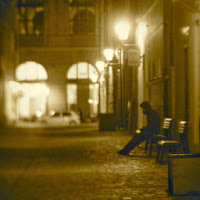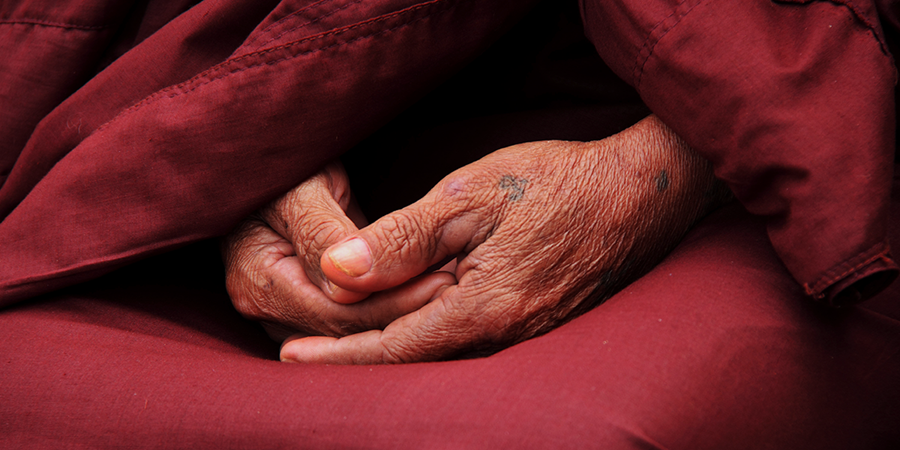EarthQuaker: The Choice to Be Human
for the loneliness of an author
Perhaps these thoughts of ours
will never find an audience
Perhaps the mistaken road
will end in a mistake
Perhaps the lamps we light one at a time
will be blown out, one at a time
Perhaps the candles of our lives will gutter out
without lighting a fire to warm us
Perhaps when all the tears have been shed
the earth will be more fertile
Perhaps when we sing praises to the sun
the sun will praise us in return
Perhaps these heavy burdens
will strengthen our philosophy
Perhaps when we weep for those in misery
we must be silent about miseries of our own
Perhaps
Because of our irresistible mission
We have no choice
“Perhaps…” by Shu Ting, from Carrying Over: Poems from the Chinese, Urdu, Macedonian, Yiddish and French African, edited by Carolyn Kizer. Translated from the Chinese by Carolyn Kizer. © Copper Canyon Press, 1988.
My beautiful eight year old son tells me he wishes he were not human. Humans do so many terrible things, he says. We are ruining the earth. We are hurting other creatures. He doesn’t want to be part of the species responsible for the harm.
I understand this feeling. It’s such a confusing, terrible paradox. We know many people, good people, our elders and mentors, neighbors and friends, who are doing their best, bringing goodness and beauty into the world in their small and large ways, teaching, reading poetry, defending the accused, cleaning offices, doing dishes, raising children. We know ourselves as people who are trying also to be good. We wrestle our demons in the wee hours. We get up weary and try again, for another day, to be kind, faithful, true to our word and willing to do the necessary tasks to which we have committed our energy and time.
 Maybe we water a houseplant once watered by our grandmother, inherited when she died. Maybe we walk the dog every morning, rain or shine. Maybe we patiently endure the sullen silence of a teenager with forbearance, take care of aging parents, make a nutritious dinner, notice the migration of birds, imagine that the impossible is possible, and fumble through awkward interactions with neighbors on the opposite end of the political spectrum, because we dimly recall we are to love them. Maybe the wind howls in the night and we check on the children, asleep in their beds, and our throats catch with the preciousness of everything, and we know for a moment that everyone loves someone, and if only, if only, if only we could all remember that, we could change all the horrors in a heartbeat.
Maybe we water a houseplant once watered by our grandmother, inherited when she died. Maybe we walk the dog every morning, rain or shine. Maybe we patiently endure the sullen silence of a teenager with forbearance, take care of aging parents, make a nutritious dinner, notice the migration of birds, imagine that the impossible is possible, and fumble through awkward interactions with neighbors on the opposite end of the political spectrum, because we dimly recall we are to love them. Maybe the wind howls in the night and we check on the children, asleep in their beds, and our throats catch with the preciousness of everything, and we know for a moment that everyone loves someone, and if only, if only, if only we could all remember that, we could change all the horrors in a heartbeat.
And then the evidence of humanity’s collective failings presents itself to us: The irrevocable truths of the ways we have fallen so very short of our highest ideals. The sprawling ugliness we have wrought in our feverish search for more and better. The bone and soul crushing unkindnesses we carelessly fling at one another. The disregard for others’ children. The relief when suffering visits others, and not us. The raw greed. The exhausting concern for our own stories, our own acquisition, our own small safeties while the very earth burns. The suffocating mountains of stuff.
How can we be so full of love, just right up to the brim with care for this life and everything in it, so willing to serve the people who populate our limited days, so capable of feeling, connection, and commitment, and also so deeply careless, so profoundly reckless, so damaged and damaging?
My boy asks this in his way, and I in mine. We might very well wish it away, but to do so is to forfeit something crucial in the agency, power, presence, culpability, responsibility and emotional truth of our humanity. To be human is to be part of this world. It’s to be part of this species, both hero and villain. We are the ones who hold the world in the palms of our grasping hands.
Maybe the greatest opportunity for our humanity lies here in this paradoxical crisis of our own creation. We’ve set ourselves up to evolve our humanity, to be equal to this task.
I still believe we can do it. This is what I tell my son, who’d rather not be human. Of course he wouldn’t. What a mess we’ve made. Who doesn’t wish, at least sometimes, to get out of this easily? But facing it with as much humanity as we can muster might be our last possible offering to the earth that gave us birth.
And therefore the choice, the only one, maybe, is whether or not we will be, at last, human.


